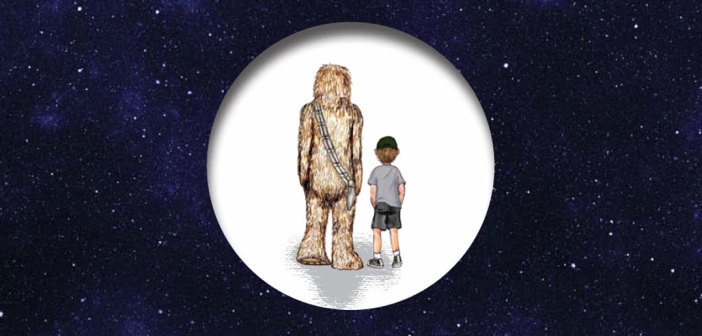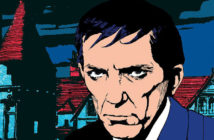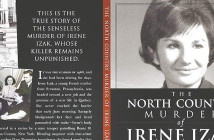The night is clear in my memory: my sister and I were staying with my aunt and uncle for a week during the summer, and it was the evening before our trip back home. My sister was with my aunt and two cousins, while I was curled up on the living room sofa half asleep; my uncle passively clicked through the channels. He eventually settled on the image of a wicked, poisoned, and grimacing face cloaked in a midnight-black cowl. Electric flashes popped and flared. The shot then cut quickly to another figure clad in black; his mechanical breathing gasped through a smudged and dirty helmet. The shot cut one more time to a third person, a young man who, unlike the other two, was human in body and spirit. He was dying, begging for mercy. He found it.
This is my first and most powerful memory of the Star Wars trilogy, and one I won’t forget for the rest of my life. I was 11 years old at the time, and I chased those final images from Return of the Jedi not unlike how a heroin addict chases his first taste of the destructive narcotic. But a heroin addict will never feel that initial pleasure again, no matter how long he searches. I was more fortunate. Several months later, right at the beginning of those exquisite days that usher in Christmas vacation, I found my dragon once more.
On TBS, each of the Star Wars films was being aired, one a night: A New Hope, The Empire Strikes Back, and Return of the Jedi. How foolish I was at the time: I only asked my mother to record the third, ignoring the first two. I jammed the tape into the VCR the moment the bus rolled up to the driveway and I bolted through the folding doors into the freshly fallen snow. For two hours, I knew the greatest feelings of fantasy: epic heroes, tragic villains, wicked monsters, galactic mysticism, grand resistances, and unforgettable journeys.
But when Jedi was over, a tragedy occurred. I filed the VHS away in the pile that my mother used to tape her own television shows. The video was recorded over before I could save it, and my gateway was seemingly lost forever. Sadness and depression set in. But as the weeks of December faded into the New Year of 1997, I eventually bucked up and moved on. And then without warning, for my birthday that February, I tore open an angular gift that was the boxed set of the Star Wars trilogy on VHS—truer loves have never been reunited. Such simple and happy times they were.
I apologize for this tangent, but I can’t help myself. These memories were stirred up by Tony Pacitti’s enchanting new memoir, My Best Friend is a Wookiee: One Boy’s Journey to Find His Place in the Galaxy. I should note now that this book is not a “graphic memoir” along the lines of Craig Thompson’s Blankets or Alison Bechdel’s Fun Home. This story is pure prose, and while the staff writers at Broken Frontier almost only focus on comics for book reviews, Pacitti’s work deserves some special attention.
The very title of My Best Friend is a Wookiee says it all: Pacitti relates to us his life as remembered through the filter of Star Wars. A bit nerdy, perhaps, but it’s a scenario I’m certain many of us can relate to. Judging by the book’s contents, Pacitti was an insecure, misunderstood, and ridiculed boy who disappeared into his fantasies for refuge. It all sounds so familiar.
Pacitti’s own relationship with Star Wars began when he was seven years old—the catalyst involved a group of bullies, a wad of mud, and his tender young head. They all converged in the worst scenario possible, resulting in Pacitti rushing home to the security of his mother. After cleaning the kid up, she offered him some solace: The Empire Strikes Back bootlegged from HBO. And in the fashion of all working and lower middle class families of the era, it was the second of two movies taped onto the same VHS. Such memories—it took me years to see the original Ghostbusters because it was trapped behind some boring adult drama that I was too lazy to fast-forward past. As I said—they were such simple times.
For Pacitti, The Empire Strikes Back was love at first sight. He was already a lifelong fanboy in training, spending every moment of his life outside of school consuming copious amounts of video games, cartoons, and fantasy movies. His interests weren’t discouraged by his parents, but rather accepted and embraced, considering the fact that they were both lifelong Trekkies. Who were they to judge?
But Star Wars proved to be more than an admired movie for Pacitti. Rather, it provided him with an imperative escape from his own life when the going got too tough. Pacitti was the constant target of bullies during his younger years, and though he had his own small crew of friends that shared his interests, he found true comfort on his own, lost in his imagination. “Even more vividly than I can remember playing with other kids in my Lynn neighborhood, I remember playing alone… And I loved TV. Loved it,” Pacitti writes at the beginning of the second chapter of the book. Truer words have never been spoken.
Like my own bootlegs of the Star Wars films, Pacitti also graduated to the official videos when his parents realized how much the films meant to him. They instantly became a security blanket that offered him both protection and direction in life. All of his milestones are some how linked to the films. And sometimes, his most important milestones are the films. For example, he recalls the buzz when the original trilogy was re-released in theaters during the late 1990s; it’s a feeling of magic and excitement he remembers with a cherub’s warmth, despite some of the gratuitous CGI additions George Lucas couldn’t restrain himself from adding.
But Pacitti’s life becomes more complicated as he enters adolescence and eventually his teen years. Old friends become enemies, (ala Obi-Wan and Vader), some vandalism occurs, minor drugs are experimented with, and Pacitti tries to find a crowd to call his own, a task that turns into a shallow exercise of fading into the background rather than forging true friendships. But there’s no use in judgment here: they’re awkward years for everyone and hindsight is always 20/20.
As Pacitti grows up, so does his metaphorical Wookiee of a best friend. To be frank, some of my favorite passages in the memoir are the author’s sharp recollections of his disappointment in the new trilogy. It’s been my experience that Star Wars enthusiasts (many of them more intense than even Pacitti) are oftentimes the worst of apologists for the new episodes, treating Skywalker Ranch as Jonestown and George himself as the infamous Jim Jones who passed out the Kool-Aid. But not Pacitti—for that, he should be proud of himself.
Anyone who appreciates the epic storytelling of the original trilogy has the right to recognize the failings of characterization, plotting, and overall spirit in the most current installments. They are all a lethargic, boring mess more interested in marketing gimmicks and tacky CGI effects rather than celebrating bombastic space opera and lively science fantasy. For anyone who has not treated themselves to Red Letter Media’s Harry Plinkett reviews of the new Star Wars films, please don’t miss out on them. They’re brilliant works of true talent.
Because I only love the Stars Wars mythos as a trilogy of great stories and never allowed them to influence my life on an intimate level, it took me a few years to articulate my genuine disdain for the new trilogy, but Pacitti bravely stood against them at the beginning. This speaks to his character as portrayed in the memoir: he’s an outsider, but nevertheless has a powerful and sharp voice that clearly articulates the inner workings of his own mind and imagination, a trait that surely acts as psychological compass directing him through life
I fully realize and admit that I talked about myself a lot here, but that’s the effect this book had on me. Truly good memoirs are conversations: they speak to the reader as if catching up with an old friend over a late-night meal in a 24-hour diner. I didn’t read Pacitti’s own memoir so much as I had a lengthy chat with him; we were catching up on old times now long gone by. Upon finishing the final page, I assumed I knew the guy all my life.
Towards the end of My Best Friend is a Wookiee, Pacitti shares a personal e-mail he sent to one of his girlfriends in which he says he’s “tired of living a life of ‘what if?’” It’s a tipping point, for he finally decides to live his life for himself as he believes it should be experienced, rather than trying to appease some abstract norm of how things in life should and shouldn’t be objectively played out.
Pacitti finally learned that trying never works, for Yoda has taught us all throughout the years: “No, try not. Do, or do not. There is no try.”
This book review originally appeared on Broken Frontier.




